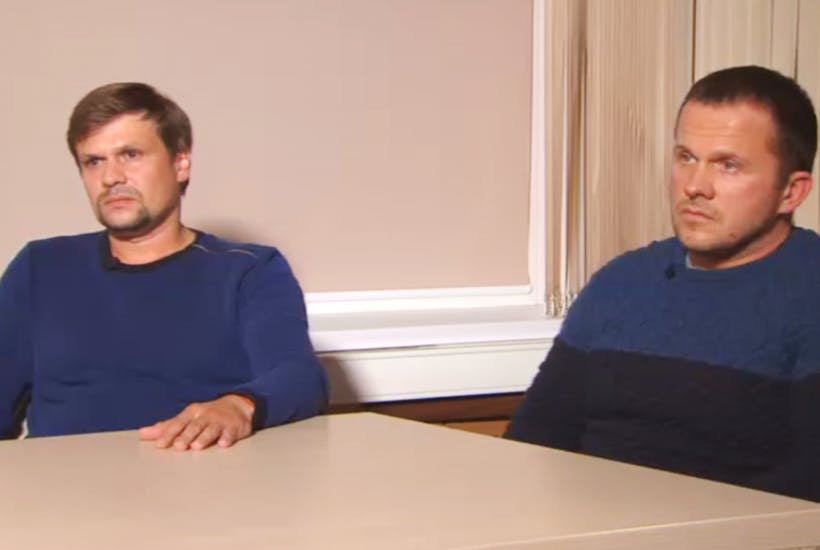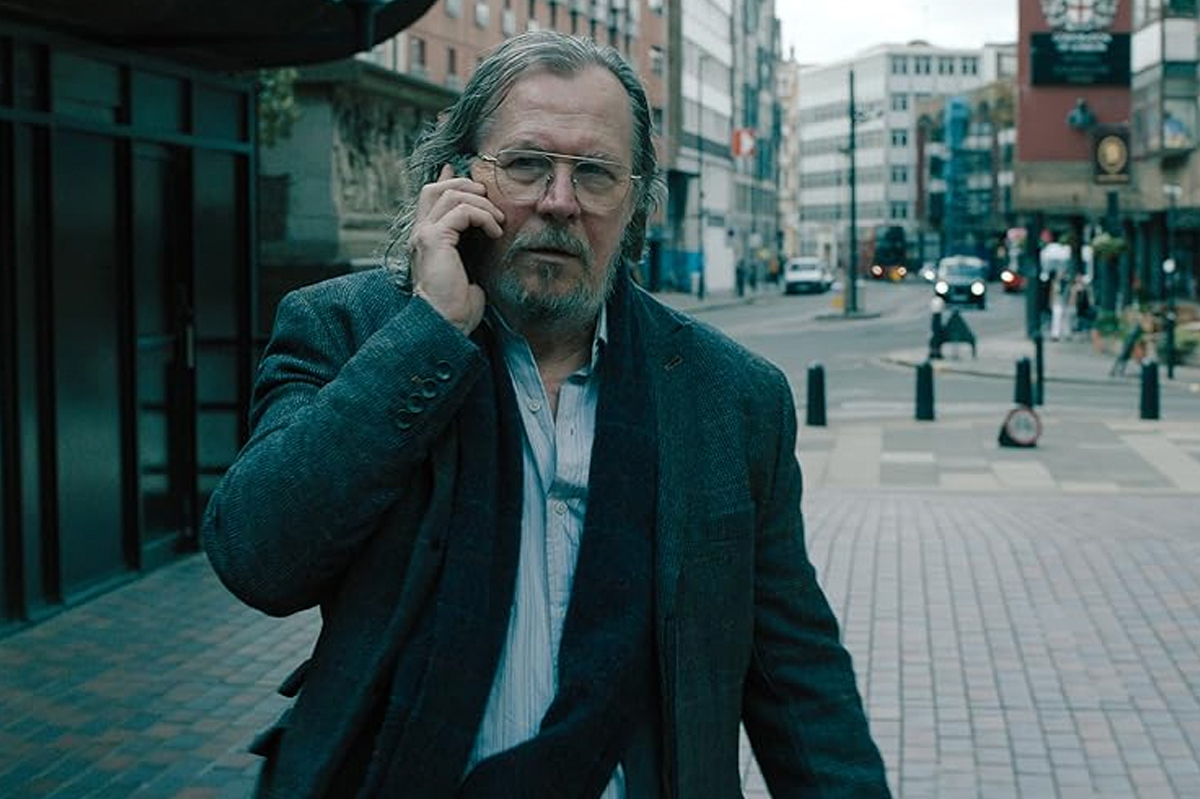Suddenly Russian spies seem funny rather than fearsome. ‘More Johnny English than James Bond’ as UK Security Minister Ben Wallace put it, as if the Salisbury pair had not killed on British soil.
It’s certainly true that we have seen some big blunders on the part of the GRU, Russian military intelligence: Sergei Skripal’s would-be assassins presenting themselves as innocent sports nutritionists with a taste for 13th-century ecclesiastical architecture. Hackers caught in the Netherlands with laptops that had not been sanitised between operations. The names of 305 GRU officers made public because they registered their cars at their base, presumably in order to avoid paying car tax. The unmasking today of the second Salisbury spook as Alexander Mishkin, a military doctor working for Russian intelligence, is just the latest blow to the reputation of Putin’s spy agencies.
Yet while it is comforting to think that all we face are bunglers and petty crooks, that way of thinking leads to dangerous complacency. Moscow regards itself as at war with the West. A political war fought by trolls, spooks, diplomats and lobbyists, but a war nonetheless, fought for the very future of Russia as a great power. In a time of war, you take chances, don’t pass up opportunities and accept that there will be casualties on the road to victory.
The gung-ho GRU has embraced this shadow war, and it has been let off the leash, engaging in the kind of missions that once might have been passed over as too potentially risky: meddling in the US presidential elections, plotting a coup in Montenegro, hacking numerous governments, and, of course, trying to murder their former colleague, Sergei Skripal. But the more operations you run, the more that will fail. The more active missions you have on the board at any one time, the more you’ll need to reach beyond the A-team, relying on officers who didn’t make the top grade. The sort who might hang on to a taxi receipt that places them at GRU HQ, for example; or the kind who wants to save some rubles on their car tax.
But how many missions are succeeding? The GRU’s risk-taking mindset means it can also pull off real triumphs. In 2007, for example, a sub-lieutenant in the Canadian Navy, Jeffrey Delisle, walked into the Russian embassy in Ottawa and offered to become a spy. The SVR (Russian Foreign Intelligence Service) worried that this was a set-up, passed on the opportunity. But their colleagues in the GRU took a chance; for the next four years, they were able to profit from Delisle’s position in an intelligence centre to access thousands of top secret files, not just from Canada but also from Britain, the US, and Australia.
The GRU is not a maverick service, and there is no evidence – yet, at least – that Putin is unhappy with his attack dogs. Even if we do see some mysterious ‘resignations’ in future, it will most likely be a punishment for their failures, not their attempts. Overall, they are doing what Putin wants them to do: challenging and testing the West, taking chances and seeing where they can go.
And what was the fallout of their failed assassination attempt in Salisbury? The Skripal assassins were identified, but in an age of CCTV, biometrics and facial recognition software, that was bound to happen anyway. The traitor lived and a civilian died, but ‘collateral damage’ happens in war. For a few news cycles, Russia has had to suffer the jibes and condemnations of the West, but Putin cares about results more than optics.
Besides the GRU is only one of his intelligence services. The more urbane MI6-counterpart SVR and the domestic security officers of the FSB (who also do spying and political dirty work on the side) are not on a tea-break. Before we spend too much time congratulating ourselves on the recent GRU busts, let’s also wonder what they are up to.
Have the Kremlin’s spies suffered some reverses? Absolutely, and embarrassing ones at that. But it doesn’t mean we should relax our guard and assume all we are up against is the cast of ‘Carry On Up The Kremlin’. That would be exactly what Putin wants.
Mark Galeotti is a senior fellow at the Institute of International Relations Prague. He is also the author of The Vory: Russia’s Super-Mafia
This article was originally published on The Spectator’s UK website.

























